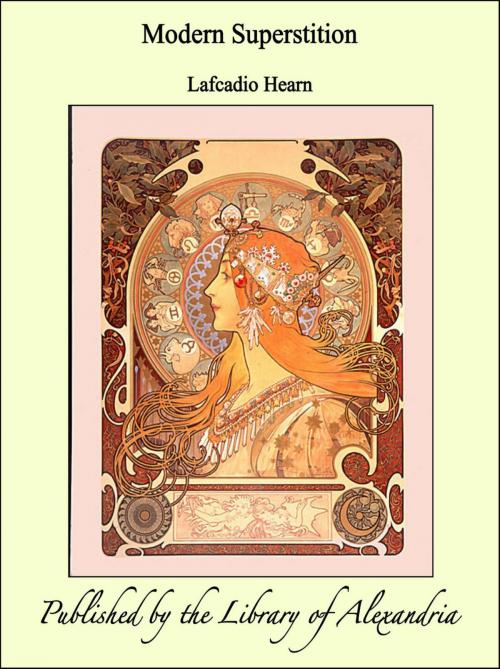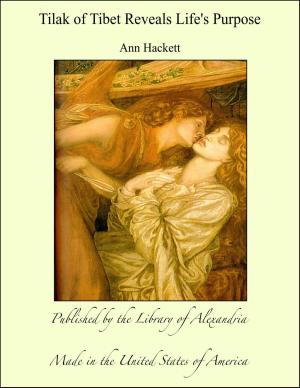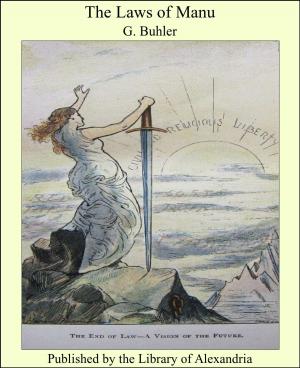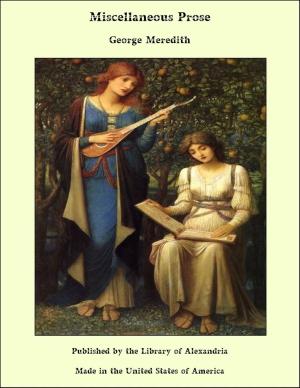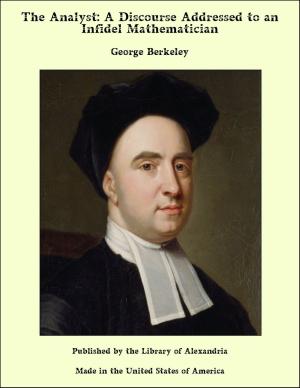| Author: | Lafcadio Hearn | ISBN: | 9781465562517 |
| Publisher: | Library of Alexandria | Publication: | July 29, 2009 |
| Imprint: | Library of Alexandria | Language: | English |
| Author: | Lafcadio Hearn |
| ISBN: | 9781465562517 |
| Publisher: | Library of Alexandria |
| Publication: | July 29, 2009 |
| Imprint: | Library of Alexandria |
| Language: | English |
That superstitions outlive religions is a truth too palpable to require much dwelling upon, especially at this epoch of folklore studies, when modern superstitions are being traced back not only to Greek or Roman days, but beyond them through the dust of dead civilizations back to ages of primitive fetich-worship. Human nature has not very much changed since the beginning of history; the advantages of scientific progress are enjoyed by all, but the methods by which they have been obtained are mysterious to the vast majority of mankind; the average skull of the nineteenth century may be of greater capacity than the skull of the middle ages, because it has much more work to do, but the superstitions of the middle ages are by no means quite dead. With the vast widening of human knowledge, and the ever-growing necessity for specialization, it becomes more and more evident that the dream of a universally intelligent humanity is not likely ever to be realized. Men continue to write essays about the coming age of philosophy, the approaching golden era of science;—even while the dismal fact prevails that the greater part of the human race is ignorant of the most simple natural laws. To expect that all civilized men should know something about all the general results of scientific discoveries is absurd enough; but it would not seem too much to expect that universal education should infiltrate some positive knowledge of natural laws into the human mind at large. Yet the peculiar tenacity of many absolutely primitive and barbaric superstitions proves that such expectation has little to justify it. Consider, for example, the prevalence of beliefs in astrology, in fortune-telling, in divination, in quackery and imposition of the grossest description! It is useless to say that those fortune-tellers and clairvoyants who make fortunes in all the capitals of the world, who swarm in all the large cities of the United States, are visited merely out of curiosity. They are believed in quite as stoutly as are the superstitions about Friday, about the bad luck attaching to presents of knives or scissors, about the howling of dogs, about ghosts, about cats washing their faces, about dreams. And those who excuse their visits to such people by the plea of curiosity, do so only because of the vulgarity attaching to all such beliefs and such acquaintanceship. Some might imagine the very fact that fortune-tellers and fortune-telling are considered despicably vulgar, to indicate a disappearance of the practice and of its professors at no very distant day. But this would be a serious mistake. Fortune-tellers were considered quite as disreputable thousands of years ago as they are to-day,—indeed, even more so; and they have always made most money from those who profess not to believe in them at all.
That superstitions outlive religions is a truth too palpable to require much dwelling upon, especially at this epoch of folklore studies, when modern superstitions are being traced back not only to Greek or Roman days, but beyond them through the dust of dead civilizations back to ages of primitive fetich-worship. Human nature has not very much changed since the beginning of history; the advantages of scientific progress are enjoyed by all, but the methods by which they have been obtained are mysterious to the vast majority of mankind; the average skull of the nineteenth century may be of greater capacity than the skull of the middle ages, because it has much more work to do, but the superstitions of the middle ages are by no means quite dead. With the vast widening of human knowledge, and the ever-growing necessity for specialization, it becomes more and more evident that the dream of a universally intelligent humanity is not likely ever to be realized. Men continue to write essays about the coming age of philosophy, the approaching golden era of science;—even while the dismal fact prevails that the greater part of the human race is ignorant of the most simple natural laws. To expect that all civilized men should know something about all the general results of scientific discoveries is absurd enough; but it would not seem too much to expect that universal education should infiltrate some positive knowledge of natural laws into the human mind at large. Yet the peculiar tenacity of many absolutely primitive and barbaric superstitions proves that such expectation has little to justify it. Consider, for example, the prevalence of beliefs in astrology, in fortune-telling, in divination, in quackery and imposition of the grossest description! It is useless to say that those fortune-tellers and clairvoyants who make fortunes in all the capitals of the world, who swarm in all the large cities of the United States, are visited merely out of curiosity. They are believed in quite as stoutly as are the superstitions about Friday, about the bad luck attaching to presents of knives or scissors, about the howling of dogs, about ghosts, about cats washing their faces, about dreams. And those who excuse their visits to such people by the plea of curiosity, do so only because of the vulgarity attaching to all such beliefs and such acquaintanceship. Some might imagine the very fact that fortune-tellers and fortune-telling are considered despicably vulgar, to indicate a disappearance of the practice and of its professors at no very distant day. But this would be a serious mistake. Fortune-tellers were considered quite as disreputable thousands of years ago as they are to-day,—indeed, even more so; and they have always made most money from those who profess not to believe in them at all.
